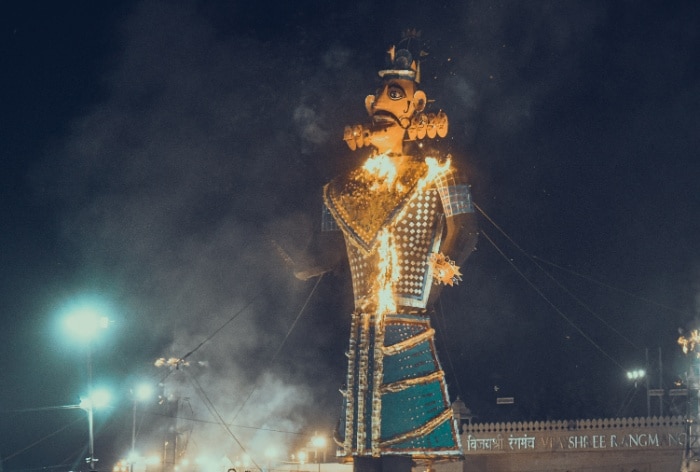Dussehra is one of the biggest festivals in India and while Lord Ram and Goddess Durga are worshipped on the day, some people also perform Saraswati Puja. Here’s the signifcance of other popular rituals.

Dussehra, with its spiritual foundations, serves as a forceful reminder of the everlasting principles that guide both our inner and outer lives. This is because Dussehra is a festival that celebrates the victory of good over evil. It encourages us to vanquish the demons that are inside us, to be true to our Dharma, to engage in acts of forgiveness, and to uphold our traditions.
Lessons Learned From the Story of Dusshera:
- The Overcoming of Evil by the Forces of Good: Our daily lives are frequently fraught with difficult ethical issues and moral conundrums. The holiday of Dusshera serves as a reminder to us that it is necessary to choose the road of integrity, even when it is challenging. This is a lesson that challenges us to face our own personal demons and emerge victorious from the conflict for the sake of our own personal development.
- The significance of Dharma: We can take this lesson and apply it to our lives in the current world by making it a priority to strike a healthy balance between our individual goals and our obligations to society. Recognizing our Dharma and remaining true to it can provide for a more peaceful existence, not only for ourselves but also for society as a whole. This is true not only for individuals but also for communities.
- Being Thankful Is Crucial: In the course of our lives, we will experience a variety of disputes and betrayals. The message of forgiveness that Dusshera imparts to us encourages us to let go of these adverse feelings, which pave the road for healing and reconciliation. We can experience the cathartic release that comes with forgiving others if we make an effort to repair damaged relationships and present an olive branch to them.
Lesser Known Traditions of Dusshera
- Worship of Arms and Armor: On the holiday of Dussehra, some communities observe Ayudha Puja, often known as the “worship of weapons and tools.” As a sign of respect for the implements that contribute to one’s ability to make a living, participants in this practice meticulously clean and adorn the implements of daily life, including weapons and pieces of machinery.
- Display of the Golu: During the festivals of Navaratri and Dussehra, South India, and particularly the state of Tamil Nadu, upholds an exceptional custom known as “Golu.” Dolls, idols, and miniatures are arranged on a tiered platform in a manner that frequently depicts scenes from mythology, culture, and everyday life. People go to each other’s homes to see the Golu because the display is open to the public and there is no admission fee.
- Saraswati Puja: Dussehra is also connected with Saraswati Puja, which is the worship of the goddess Saraswati as the patron of science, arts, and music in certain regions of India. Students, artists, and musicians pay devotion to the goddess Saraswati by presenting her with books, instruments, and other items associated with their respective fields.
Denial of responsibility! Todays Chronic is an automatic aggregator of the all world’s media. In each content, the hyperlink to the primary source is specified. All trademarks belong to their rightful owners, all materials to their authors. If you are the owner of the content and do not want us to publish your materials, please contact us by email – todayschronic.com. The content will be deleted within 24 hours.
